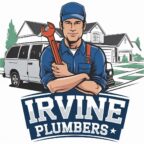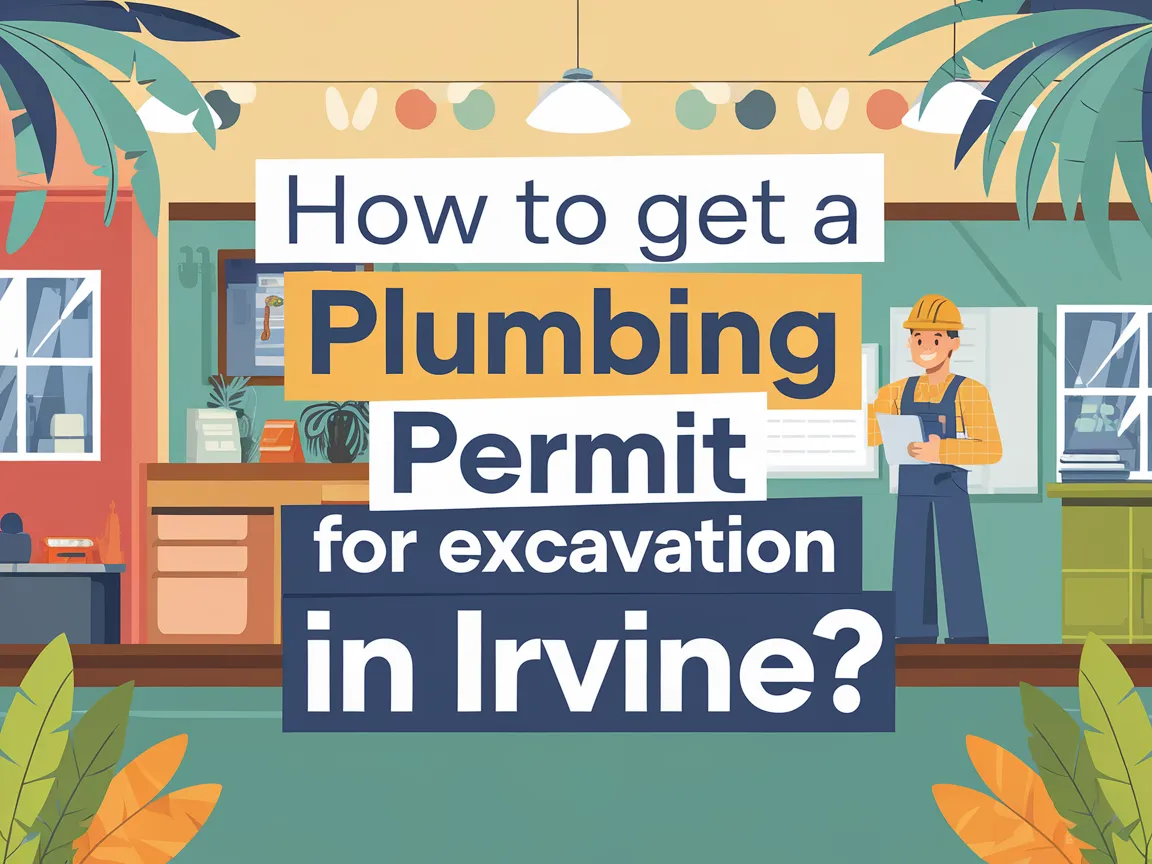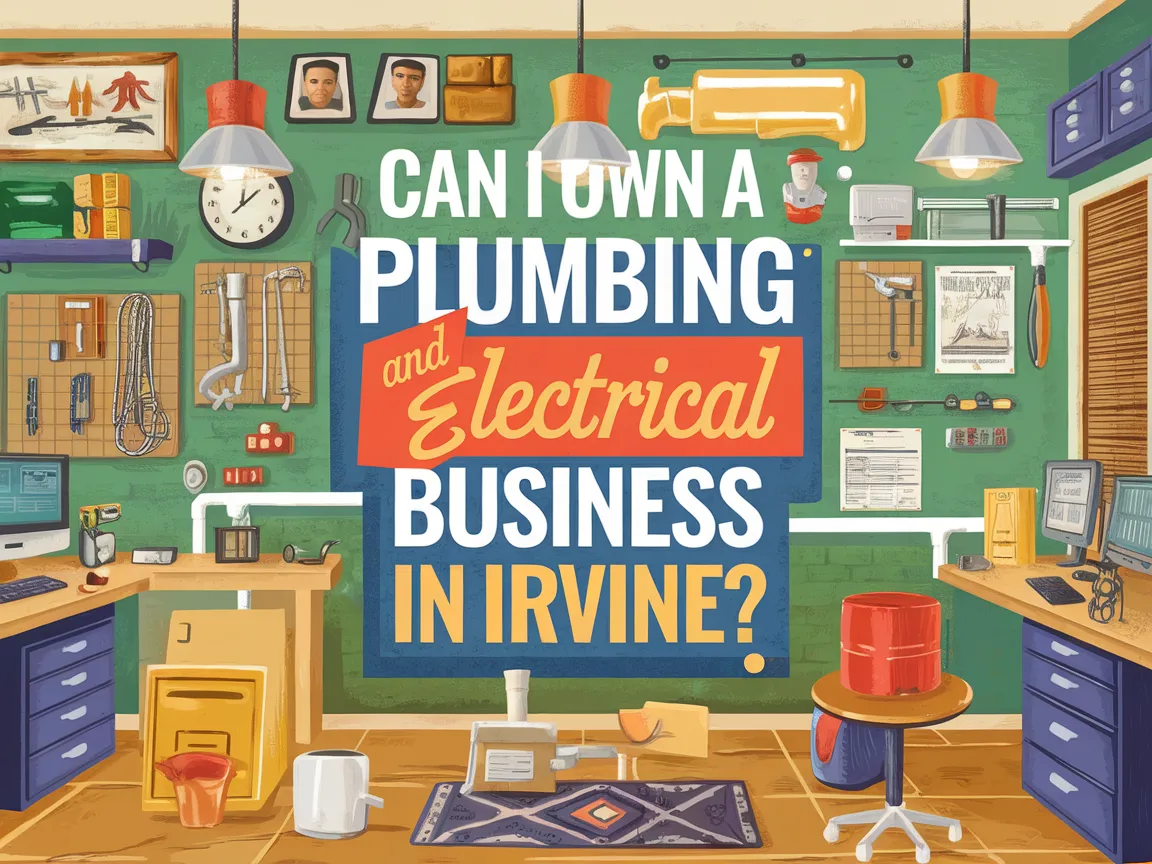How to Start Plumbing?
Last Updated: February 27, 2025
Plumbing is like a big puzzle that helps your water run smoothly in your home. It’s all about professional plumbing services and fixtures that make sure you can wash your hands and take showers comfortably.
I can’t tell you how many times I’ve been asked about how to start plumbing basics for DIY. From my first-hand experience, I’ll guide you through the basics, giving you the tools and tips you need to get started.
In this guide on how to start plumbing, you’ll learn about the basics of plumbing, steps to kick off your journey, costs involved, factors affecting those costs, special considerations, and when it’s best to call plumbing experts.
Table of Contents
- How to Start Plumbing?
- What is Plumbing?
- Before You Start Your Plumbing Journey…
- Understanding Plumbing Systems
- Basic Plumbing Techniques To Master
- How to Start Plumbing Steps
- Understanding Plumbing Certifications and Licensing
- Common Plumbing Specialties You Can Pursue
- Essential Networking Groups for Aspiring Plumbers
- When to Consult Plumbing Experts or Professional Services
- You, the Unlikely Plumbing Hero Of Irvine
- Final Words on How to Start Plumbing
- Useful References
How to Start Plumbing?
To start plumbing, begin by obtaining necessary tools, studying basic techniques, and familiarizing yourself with local codes. A good first step is learning to fix simple leaks. Practice on your own plumbing projects to gain confidence. When connecting pipes, you might encounter situations requiring precise diameter adjustments, which is where reducer fittings become essential.
What is Plumbing?
Plumbing is a complex system of pipes, fixtures, and valves that transports fluids (Like Water or Gas) throughout residential and commercial properties. Here in Irvine, CA, most homes are equipped with a plumbing system that meets local building codes and safety regulations. This typically includes supply lines for hot and cold water, drain systems for waste, and various fittings that connect everything together seamlessly. Did you know that an average California home uses about 250 gallons (946 Liters) of water per day? That’s hella plumbing working behind the scenes! Homeowners in Irvine often wonder about the specific types of pipes used locally.
In my own experience, I’ve relied on plumbing for my job to ensure that every installation adheres to strict guidelines and works efficiently. As you dive into this trade, learning “how to start plumbing” is as fundamental as knowing where your starting point lies. Remember, kicking things off essentially means choosing a plumbing school or perhaps checking out local plumbing apprenticeship programs right here in the OC. One thing to keep in mind is your budget—dealing with plumbing business start-up costs in California could range anywhere from $2,000 to $10,000. If you’re serious about diving into this game, licensing options play a crucial role; without the right documentation, you’re basically hitting a brick wall! If you want expert guidance on launching your plumbing career, check out professional plumbing career strategies.
Before You Start Your Plumbing Journey…
What do you need to kick off your plumbing projects? Here’s a quick list to get you prepped and ready to dive in.
- Plumbing Wrench Set: Grab a quality set like the Ridgid 5-Piece Plumbing Wrench Set. You’ll need these to grip and turn pipes securely.
- Pipe Cutter: Invest in a tool like the Lenox Pipe Cutter 14118 for copper and PVC. It’s essential for making clean cuts, which is super helpful during repairs.
- Adjustable Wrench: A sturdy adjustable wrench, such as the Channellock Style Adjustable Wrench, is a must-have for tightening fittings. I’d recommend looking for one that works with pipes ranging from 1 to 2 inches (2.54 To 5.08 Cm).
- PVC Cement and Primer: Pick up reliable brands like Oatey Clear PVC Cement. This stuff is crucial for making strong pipe connections that won’t leak.
- Safety Gear: Don’t forget your gloves and goggles, like those from LLBELEX. They’re necessary to keep you safe when you’re working with potentially hazardous plumbing materials.
We’ve wrapped up essential tips and preparations for your plumbing journey here. Let us turn our attention to understanding plumbing systems.
Also See: How to Bid a Plumbing Job in Irvine? Expert Tips!
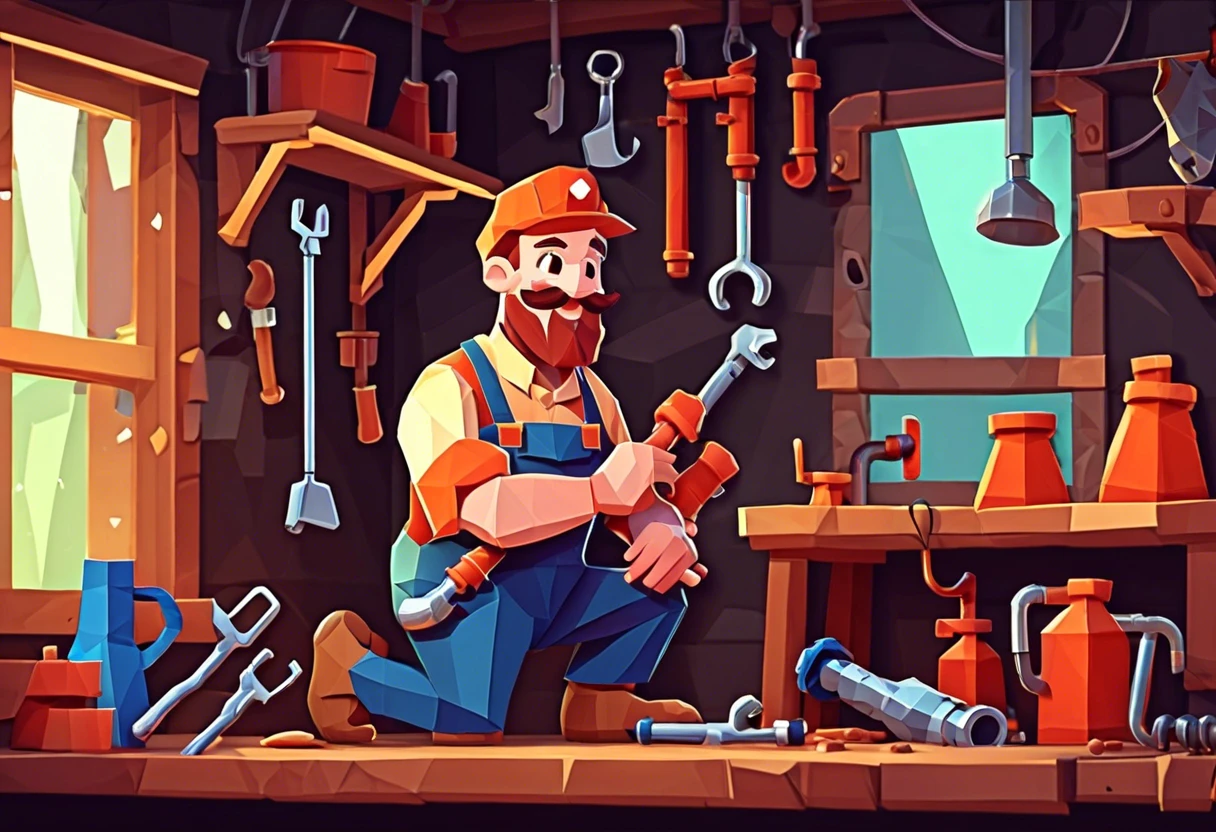
Understanding Plumbing Systems
Grasping how plumbing systems operate is crucial for anyone looking to start plumbing. Here are key components you need to know about.
- Supply System: This is responsible for providing fresh water to your sinks, toilets, and appliances. In Irvine, you’ll often find both hot and cold lines running into your house.
- Drainage System: This network removes wastewater and is crucial for keeping your home dry. Understanding how gravity plays its role in the drainage process can help you prevent clogs.
- Vent System: Vents allow air to enter the plumbing system, preventing vacuum and ensuring proper drainage flow. Without properly placed vents, your drains may not work as they should.
- Traps: These prevent sewer gases from coming back into your home. You’ll find traps under sinks and other fixtures, so knowing how they function is essential!
We covered the elements of plumbing systems here. We will now cover essential plumbing techniques to master.
Basic Plumbing Techniques To Master
As you start your plumbing journey, here are essential techniques you should practice.
- Leak Repair: Knowing how to fix minor leaks can save you a ton of cash. You’ll want to familiarize yourself with pipe tape and sealants, crucial for a watertight finish.
- Faucet Replacement: Got a leaky faucet? Learning how to replace it will not only enhance your skills but may also save you on utility bills!
- Toilet Repairs: Toilets can be tricky. Learn to troubleshoot common issues like clogs or running toilets, and you can save a lot on calling in a pro.
- Pipe Installation: Get the hang of cutting and joining pipes using different materials. Practice makes perfect, and this skill is fundamental for any plumbing project!
We’ve wrapped up essential plumbing techniques here. Let us turn our attention to steps for starting your plumbing journey.
How to Start Plumbing Steps
Now, let’s cover essential steps for diving into the plumbing world.
-
Research Plumbing Basics
Dive into the fundamentals of plumbing concepts and tools. There are plenty of online resources, from YouTube tutorials to plumbing forums, where you can grasp topics like pipe fitting or water pressure. You’ll want to focus on standard practices here in Orange County. When exploring diagnostic techniques, plumbers often rely on specialized methods to detect hidden issues in pipe systems. You might want to explore advanced pipe inspection techniques.
Understand the materials commonly used—like PVC, copper, and PEX—as each choice serves different applications in both residential and commercial settings. I’ve seen locals get a bit confused about PEX; remember, it’s a flexible material great for DIY jobs but does require special fittings.
-
Learn Basic Plumbing Skills
Try your hand at real-life skills like fixing a leaky faucet or replacing a toilet. Starting with a project you’re comfortable with boosts your confidence. I usually advise budding plumbers to tackle plumbing maintenance first before anything adventurous. When you’re ready to explore more complex plumbing challenges, professional techniques can guide your progress.
Focus on hands-on experience, like practicing how to tighten compression fittings or solder copper pipes. Here’s a little trick I’ve learned: always practice these skills at home before going out; there’s no pressure, plus you’ll make plenty of mistakes without freaking out about costs!
-
Understand Local Plumbing Codes and Regulations
Familiarize yourself with the plumbing codes required here in Irvine—it can save you from a litany of issues down the road! These codes define everything from drain sizes to venting requirements. When navigating rental property maintenance, you might wonder about specific responsibilities for plumbing repairs, which can vary depending on local regulations and landlord maintenance obligations in Irvine.
Check out info from the California Department of Consumer Affairs for clear standards affecting residential plumbing. Remember, even minor code violations can lead to unsafe situations, so compliance really matters! If you’re curious about the professional journey to becoming a skilled plumber, professional training takes dedication.
-
Start Networking in the Plumbing Community
Join local plumbing groups or forums full of like-minded folks who can provide knowledge, mentorship, and might even lead to a plumbing apprenticeship. Build those relationships; networking in truly local groups can open tons of doors. If you’re curious about technical plumbing terminology like CTS in plumbing systems, these connections can help you dive deeper into professional insights.
Attend trade shows or community events in the OC. You’d be surprised how many pros in this business are willing to share rookie tips over a casual garage-built working session!
Pro Tip: Before tackling any plumbing projects in your home, make sure you check online if similar issues have been shared by your neighbors to understand what solutions worked best in Irvine! If you’re worried about potential overcharging, you might want to protect yourself from plumbing scams.
You should now have a good understanding of beginning plumbing procedures. In the next part, we’ll discuss plumbing certifications and licensing.
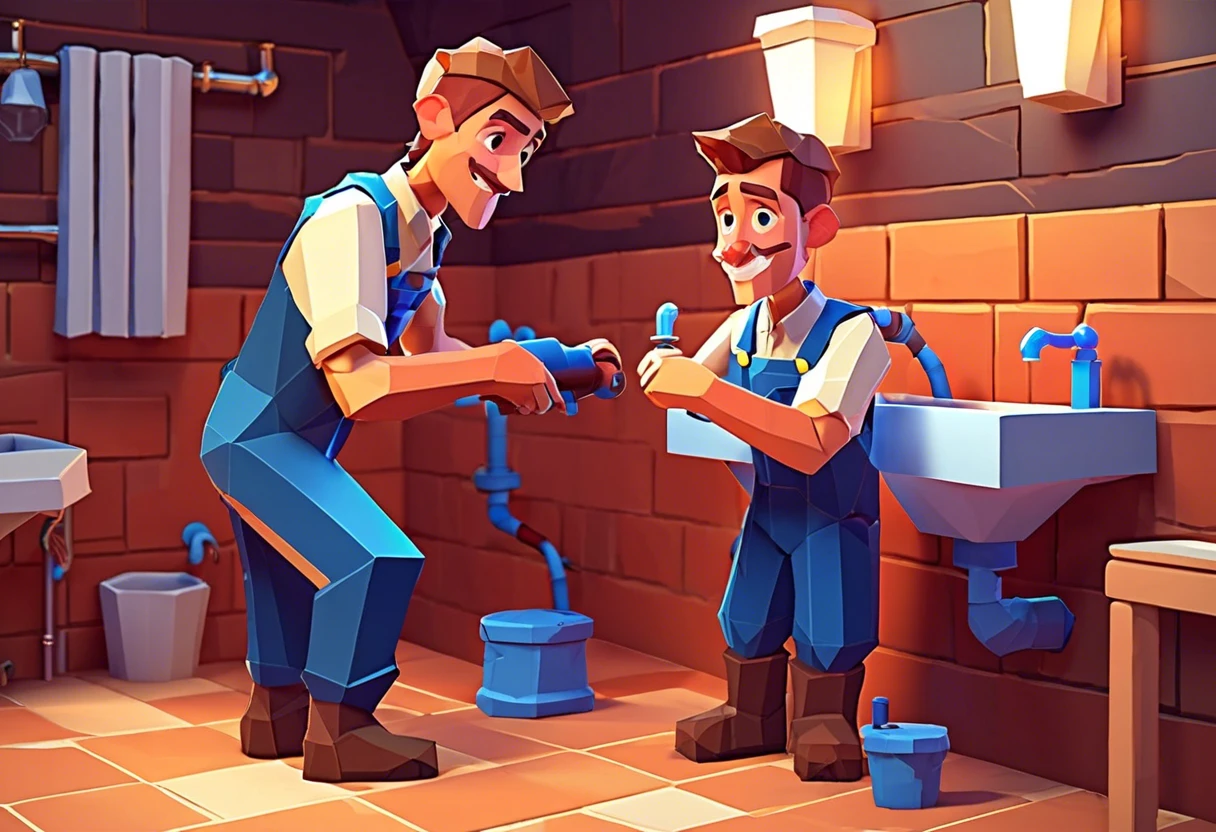
Understanding Plumbing Certifications and Licensing
Getting licensed can really set you apart in the plumbing trade—it’s like having a golden ticket in the plumbing world!
- California Plumbing License: To work on plumbing in California, you generally need a valid license. Starting as a technician requires a certificate from approved schools and experience working under licensed plumbers.
- Apprenticeship Programs: Consider enrolling in a program like the one at Irvine Valley College. These typically last for four years and combine classroom training with hands-on experience, which is super valuable in the long run.
- Continuing Education: Stay on top of new technologies and local laws! Many certifications require periodic updates. This requirement isn’t just a formality; it ensures you’re always in the know, especially with something as critical as plumbing.
Common Plumbing Specialties You Can Pursue
Venturing beyond basic plumbing? Consider these specialties that can boost your skillset and career prospects!
- Residential Plumbing: This involves working in homes and is often the first step for many. Whether it’s new installations or repairs, it keeps you in touch with your community in Irvine.
- Commercial Plumbing: Tackling larger installations and systems means mastering different codes and practices. If you’re up for a challenge, commercial plumbing can be a rewarding path!
- Pipefitting: This specialty is all about precise pipe installations. Pipefitters handle tough situations involving gas lines, which means honing your technical skills is a must.
- Service and Repair: Becoming a service tech means fixing everyday issues for homeowners—think leaky faucets or clogged drains. It’s a perfect way to build a clientele!
Essential Networking Groups for Aspiring Plumbers
Linking up with other plumbers can open doors you didn’t even realize were out there.
- National Association of Plumbing-Heating-Cooling Contractors (PHCC): An invaluable resource for getting involved and networking with others in the trade.
- Local Builders’ Associations: Organizations like the Orange County Builders’ Association can connect you with contractors looking for plumbing services.
- Online Platforms: Sites like LinkedIn have groups for plumbing professionals. Connect digitally and gather insights from experienced plumbers across the nation!
When to Consult Plumbing Experts or Professional Services
There’s no shame in calling for help when pipes are gushing or toilets are overflowing. Look for pros with solid reviews, quick response times, and experience with your specific plumbing needs.
From my experience in the OC, pay attention to warranties on work done and insurance coverage—they’re essential. Also, local recommendations are key; surrounding neighborhoods often have great service referrals.
Honestly, if pricing seems way too low, that should raise a red flag. You want quality work, even if it sometimes means spending a bit more; we all know how the old saying goes—cheap plumbing ends up being expensive plumbing! When installing complex systems like pressure tanks, professional expertise becomes crucial for proper pressure tank installation techniques.
You, the Unlikely Plumbing Hero Of Irvine
Ever found yourself knee-deep in a plumbing conundrum, right here in Irvine, CA? Literally, it’s a whole journey! But don’t worry, I’ve been through it plenty of times.
Take that time when the OC heatwave dried up everything, and my showerhead felt like it was coughing rather than raining. I thought, “Great, this is just what I need!”
Well, with some trusty tools and a bit of ‘Cali’ know-how, I took on the challenge. As they say, “With any luck,” you’ll find it’s simpler than it seems.
Here’s the thing: plumbing issues are pretty common in our sunny little slice of SoCal. Whether it’s a leaky faucet or a stubborn toilet, they can pop up when you least expect it. And trust me, I’ve seen it all – from clogged drains to broken water heaters, trying to keep everything flowing in harmony.
If your sink is draining slower than a tortoise in a marathon, grab a plunger first. Make sure it’s a good one, by the way. You wouldn’t believe how many times a well-placed plunge can be a game changer.
And those pesky leaks? Every homeowner knows the sound of dripping water can drive you hella crazy. A simple fix might just need some new washers or pipe tape. I’m telling you, a little DIY goes a long way! Just don’t get too stoked and wreck things even more.
Let’s talk costs – here in Irvine. A typical plumbing call can run anywhere from $100 to $300, depending on what’s up. If you can tackle the little stuff yourself, think of all the cash you’ll keep in your pocket for that next trip to the beach. When planning home maintenance, it’s crucial to know how long your PVC pipes will serve your home.
Now, think about this: what if you could figure things out before they get serious? For instance, regularly check under your sinks and behind your appliances. That way, you can catch leaks before they become major disasters, saving you time and a ton of hassle.
So next time you hear that weird noise from your pipes or see a puddle where it shouldn’t be, don’t panic. Perhaps we can get closer to solving it together. If you want some tips or have questions, just give me a shout! I’m always stoked to help a fellow homeowner here in Irvine. When considering expanding your home repair skills, you might want to explore owning a plumbing business in our local area.
Final Words on How to Start Plumbing
We’ve reached the end, and I appreciate you sticking around. We covered the essentials of how to start plumbing, including what plumbing is, the steps to embark on your plumbing journey, cost estimates, factors that influence plumbing costs, and special considerations when starting out.
To sum up the whole process for how to start plumbing, just take those initial steps, get your tools ready, and don’t hesitate to consult experts when needed. Feel free to reach out if you have more questions—I’m always happy to share what I’ve learned over the years.
If you want to dive deeper into the plumbing world, check out Irvine Plumbers for further insights.
